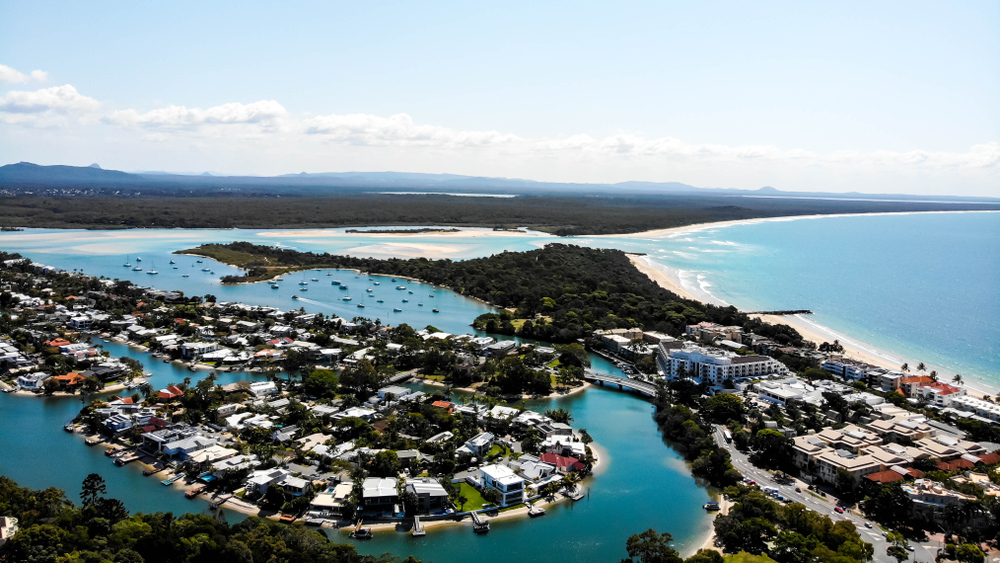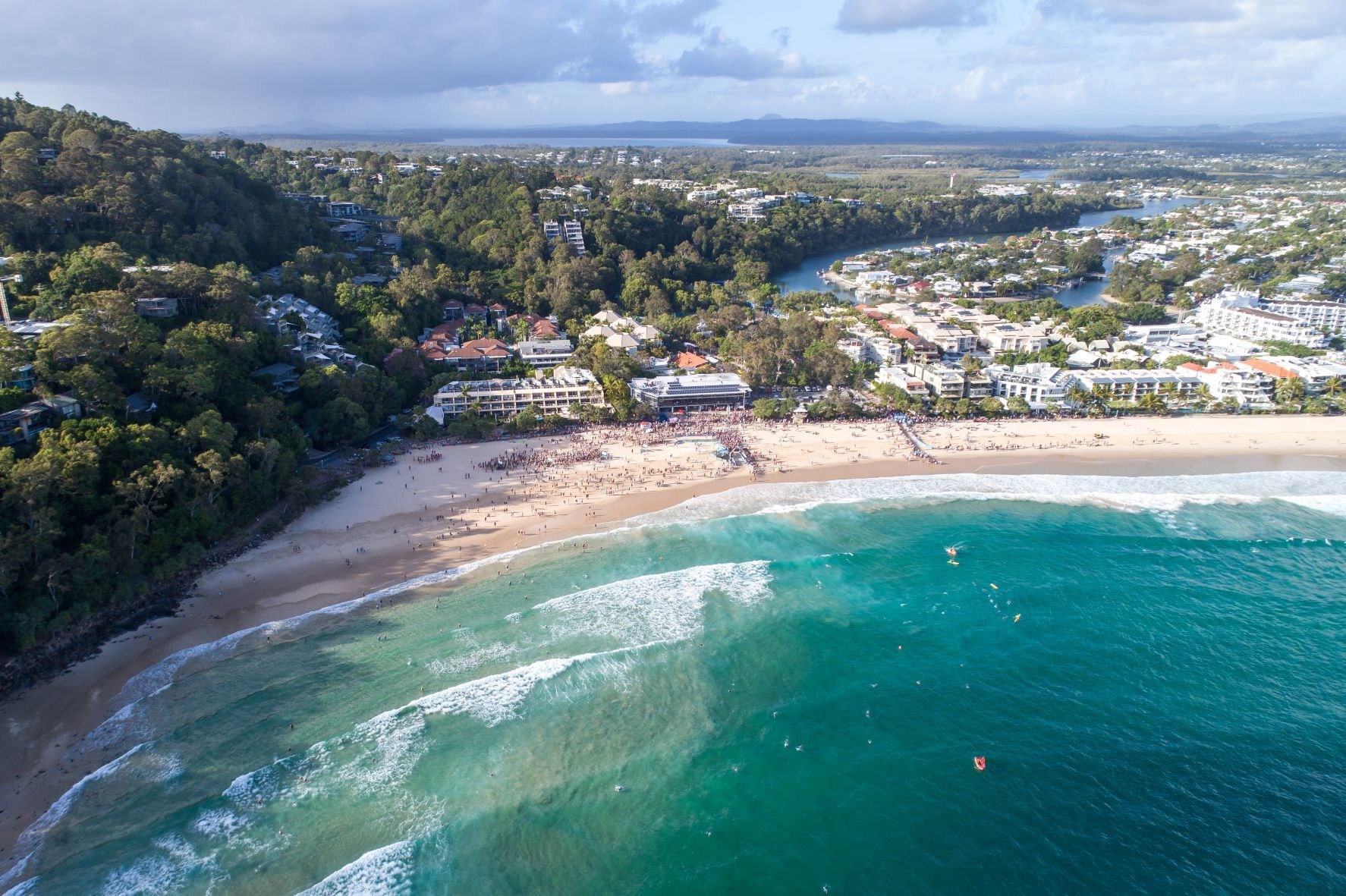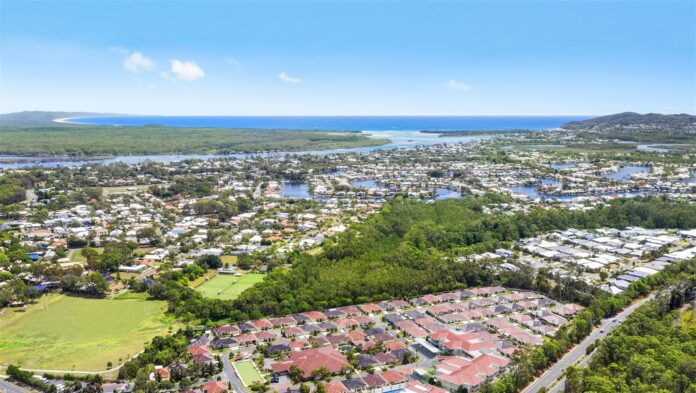A new online resource is set to provide additional “transparency” for the community as Noosa’s short-stay regulations continue to divide residents.
It comes a month after a community group submitted a petition to council outlining the concerns of a “growing number” of Noosa residents.
New data has been revealed showing the impact of Noosa Council’s short-stay local law since it was introduced in February 2022.
Noosa was the first council in Queensland to introduce the framework as a way to regulate and manage the ongoing use of private homes for holiday letting.
It followed calls to address the impacts on permanent residents and residential amenity.
However, the law, which has resulted in more than 2500 properties being approved for the use, has been met with criticism from community groups and residents since its enforcement.
Noosa Council has now unveiled a new online dashboard to help the community monitor the operation and regulation of the local law.
The Short Stay Local Law Snapshot will provide data on current approval numbers, how many compliance notices and fines have been issued, number of applications refused, the suburbs with the most approvals and how many calls to the short-stay hotline.
The statistical dashboard, on council’s website, will be updated quarterly.
The petition was tabled to Noosa Council on January 18 by Residents Against Unregulated Short Term Rent Approval (RAUSTRA), which labelled the implementation of the local law as “stumbling and generally unsatisfactory”.
RAUSTRA was convened during development of the local law to ensure residents’ concerns were heard with the opportunity to brief councillors.
According to the petition, the group welcomed the adoption of the local law and participated in the council’s 12-month review, required by the state government.
However, now RAUSTRA is claiming the initiative was “tokenistic”, outlining a list of concerns pertaining to the laws.
“We, the undersigned, respectfully assert that two years after adoption of the short-stay local law, its implementation is stumbling and generally unsatisfactory,” the petition stated.
“Despite the declarations of support for residents and the restoration of residential amenity by Council and councillors that accompanied its adoption, increasingly the community perceives the initiative as tokenistic.
“The community expected more and wants answers and action.”
The petition went on to state the group “cautiously” welcomed the adoption of the local law, understanding that the use of a property for short-stay accommodation should not negatively impact on surrounding residential amenity, including noise and parking.
“But in practice this protection is not being delivered,” it said.
“Many in the community are now frustrated and disappointed.”

Initial data from the Short Stay Local Law Snapshot showed Noosa Heads as the top suburb for approval, with 950, followed by Noosaville with 864 and Sunshine Beach with 839.
Mayor Clare Stewart said responding to the community’s concerns had been instrumental in developing methods to proactively deal with the short-stay issue.
“As we were the first council in Queensland to tackle this issue, it continues to be a learning process and adjustments are required,” she said.
“But the release of this snapshot is a great initiative for our community and provides clarity on where things are at regarding the local law operation.
“We are only two years into the process.”
Director development and regulation Richard MacGillivray said the focus was now on stepping up compliance activities.
“Our staff continue to action all complaints received and the emphasis is now focused on increasing compliance activities across the shire,” he said.
“Whilst we acknowledge there is more to be done, we are observing that guests and short-stay letting operators are becoming acutely aware of the importance of preserving residential amenity.”

The law was tested in the Planning and Environment Court recently, when a Peregian couple’s appeal to use their property for short-term accommodation was dismissed on February 15.
The owners set out to appeal council’s refusal of their application on the grounds that there was an “existing use of the premises for the operation of short-stay letting” prior to the introduction of the law.
Judge Glen Cash dismissed the appeal and in his conclusion stated he was “not satisfied the appellants have shown their application satisfied the criteria contained in the local law and the subordinate local law”.
“It follows that the appeal must be dismissed, and the decision of the respondent confirmed,” he said.
According to the newly released data, of the 2599 short-stay approvals issued since February 2022, more than 85 per cent have relied on a current planning approval, with the remainder demonstrating the establishment of existing use rights.
The statistics also indicate calls to the hotline dropped by 64 per cent in December 2023, compared to those recorded in December 2022.
Mr MacGillivray said the majority of breaches had been issued to operators for not responding to a complaint within the required time.
“Sixteen fines and 127 compliance notices have been issued since February 2022, with most breaches for an operator failing to respond to a complaint within the 30-minute time limit, imposed as part of the approval conditions,” he said.
There were 592 calls specifically about short-stay matters to the hotline in 2023, compared to 375 from 2022.
“We are always looking for ways to improve what we do – last year we reviewed the short-stay local law, as we said we would do,” Mr MacGillivray said.
“We intend to update the information every quarter on our website, so it is easily accessible, for the community.”
The online dashboard can be found here.
Help keep independent and fair Sunshine Coast news coming by subscribing to our free daily news feed. All it requires is your name and email. See SUBSCRIBE at the top of this article.





